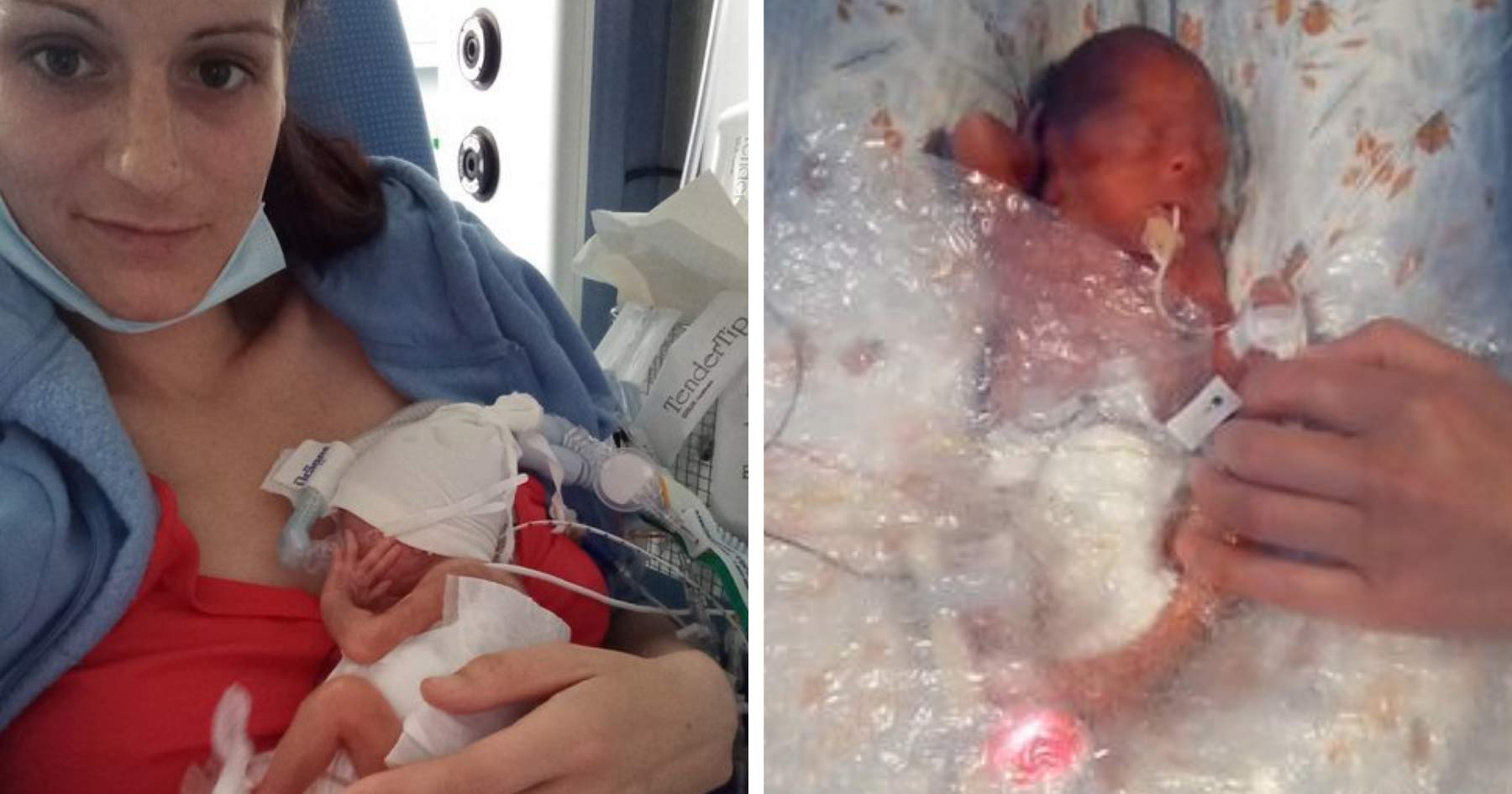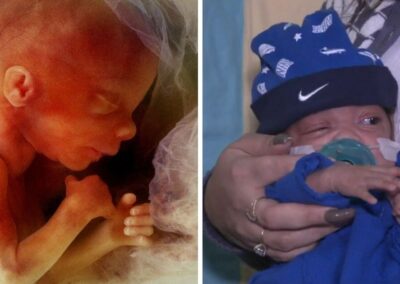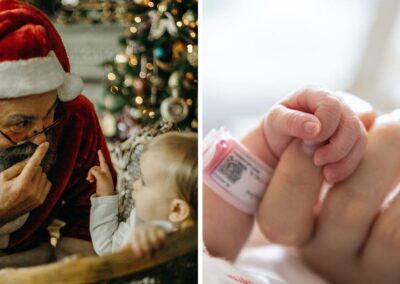Mum Gemma Richards, 27, has told journalists how her baby was so small at birth that she mistook him for the placenta.
Gemma’s son Casper was born at 24 weeks, weighing 1lb 8oz and was given just a 30% chance of survival.
Gemma Richards had been getting ready for work as a carer when she experienced bleeding – something she initially dismissed, having experienced it with her three pregnancies prior.
Yet within an hour, she found herself in excruciating pain, and her husband Gareth, 33, phoned for an ambulance.
Gemma was taken to Royal Cornwall Hospital in Truro and woke up hours later, having given birth.
Casper was immediately transferred to St Michael’s Hospital, Bristol, where he remained in the Intensive Care Unit for over a month.
Gemma said: ‘It’s all a bit of a blur, to be honest”.
“I remember a bit of bleeding in the morning but I didn’t think anything of it”.
“My husband phoned for an ambulance and when I arrived at hospital the doctors said I had some sort of infection and that at any minute could pass onto Casper”.
“The specialist team were telling me it would be safer for the baby to come out than be in. When I woke up he was so tiny. To be honest, because he was in a little ball I thought he was my placenta”.
“It wasn’t until he was turned around that I realised I was looking at my baby boy”.
In May, doctors performed emergency surgery on Casper, removing part of his bowel and fitting a stoma, extending both Gemma’s and his stay in hospital.
Unable to stay at the hospital, the family’s other children are at home with their father, Gareth, 200 miles away in Constantine, Cornwall.
Neither Gareth nor the other children have been able to hold Casper yet due to COVID-19 restrictions.
Gemma is currently desperately trying to fund travel and accommodation for Gareth and siblings Lizzie, 7, Tyler, 5, and Oscar, 2.
She said: “I feel I can’t leave him unless his dad is here […] We have three other children who I am missing and [we’d] just like [a] little normal back in our life”.
She added, “It’s hard enough being in a pandemic but to go through one of the scariest moments of your life without your family is hard”.
“My main concern is obviously Casper and we all just want him to get better”.
“He’s recently had some surgery so he will be in here for a while. Hopefully, soon the surgery will be reversed and his bowel can be reattached”.
“We’re going to find out more in the time to come but right now we just take it day by day”.
“We really do just want to thank anyone who has helped us so far with this, we are just so grateful and we really want to be together”.
Ever-improving chances for preterm infants
Babies are continuing to be born before or shortly after the abortion limit of 24 weeks gestation in Great Britain and going on to survive and thrive at greater rates than before. Studies suggest that the majority of premature babies grow up to be healthy adults without any major health problems.
A study, published in the Journal of the American Medical Association in October 2019, followed 2.56 million babies born in Sweden between 1973 and 1997, around six percent of whom were born prematurely.
Researchers compared the health data of the premature babies to those that had been born at full term. They found that 55% of premature babies had no serious chronic, physical, or mental health issues by early adulthood. This is compared to 63% for babies born at full term.
Additionally, with each passing decade, the odds of survival for a premature baby to adulthood have improved from about 91% of babies born in the 1970s to about 96% of those born in the 1990s.
A spokesperson for Right To Life UK, Catherine Robinson, said:
“While it is wonderful to see that Caspar is being cared for, it is a source of national shame that it is currently legal to abort children up to 24 weeks gestation – and up to birth if they are likely to be born with a disability. These are not ‘clumps of cells’, they are children”.












